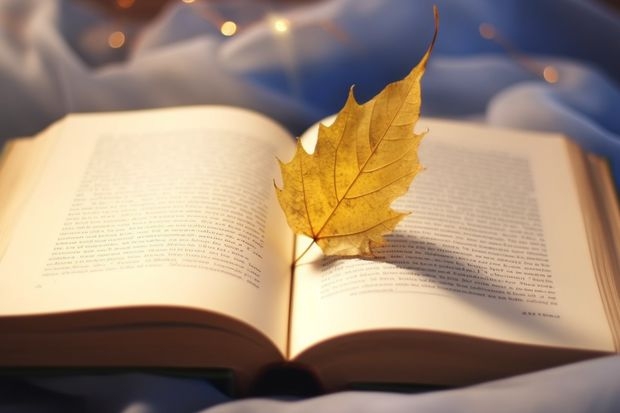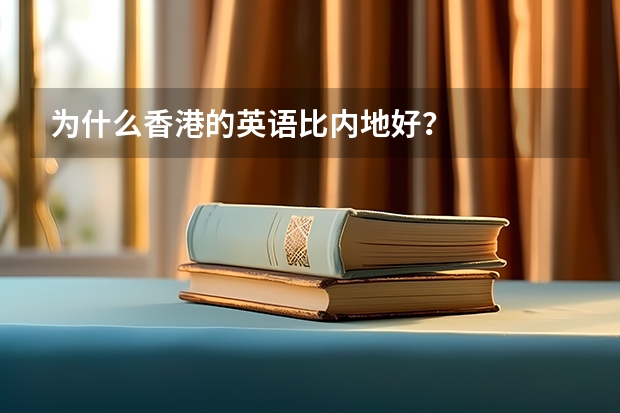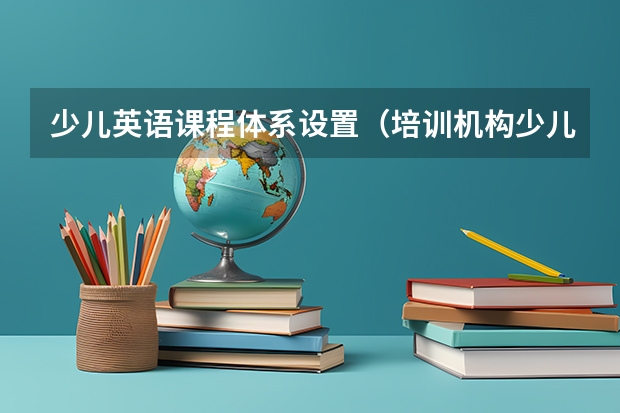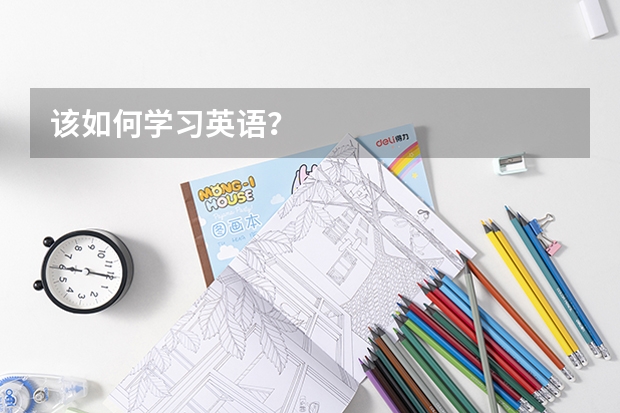帮我推荐婚礼上用的歌曲要,浪漫点的,中文英文法文或是纯音乐都可以,很急的,先谢谢大家了啊(安徽黄梅戏学校的专业简介)
2024-02-04 08:27:17 | 山东教培机构网
本文目录一览:

帮我推荐婚礼上用的歌曲要,浪漫点的,中文英文法文或是纯音乐都可以,很急的,先谢谢大家了啊
希望对您有所帮助~【仪式开始前】:
1 梦中的婚礼(钢琴曲)
2 爱的喜悦(钢琴曲)
3 爱的旋律(钢琴曲)
4 理查德(轻音乐)
5 I swear(westlife)
6 Forever
7 爱的协奏曲(钢琴曲)
8 You raise me up(westlife)
9 I do(Cherish you)
【仪式开始】:
1 nothing can change my love
2 because i love you
3 Wedding March
4 婚礼进行曲(走红地毯)
5 La provence(背景乐)
6 paint my love(香槟塔)
7 王力宏-唯一(香槟塔备选)
【宴会开始】:
1 My love
2 take me to you heart
3 that’s why
4 Sweet Dream
5 blue night
6 Everything I do
7 Swear it again
8 THE WIND OF CHANGE
9 爱人
10 不得不爱
11 花好月圆
12 恋着多喜欢
13 水边的阿狄丽娜
14 瓦妮莎的微笑
15 欧美情歌 - 永恒的爱
16 狮子王
17 陶喆-就是爱你
18 香水百合
19 我愿意
20 我的最爱
21 林俊杰—油条豆浆
22 Fly Me to The Moon
23 YOUR SMILE
24 TRACK09
25 爱你一万年
26 爱情故事
27 初雪
28 春水
29 蓝色的爱
30 没有人可以叫你宝贝
31 梦中小鸟
32 女驸马
10 You took my heart away(Michal&rock)
11 The daylight(轻音乐)
12 Without you(Mariah Carey)
13 I will always love you(Whitney Houston)
14 Laterna magic(轻音乐)
15 喜洋洋
16 大城小爱(王力宏)
17 就是爱你(陶喆)
信息来源:幸福婚嫁社区: -htm-tid-12208.html
参考资料: -htm-tid-12208.html
独特的环节的话,不知道喜欢什么的,不过可以看看“真爱至上”这部片子。

安徽黄梅戏学校的专业简介
一.戏曲表演专业
学制四年,以小学、初中在校生为主要招生对象。本专业学生毕业后除了一部分到戏曲表演团体工作外,绝大部分被部队、学校、娱乐、旅游接收吸纳。近几年改革开放力度加大,对黄梅戏表演人才要求量也大增,就业率达到90%以上,并有十多名学生先后考入中国戏曲学院、中央戏剧学院、上海戏曲学院。四十多年培养学生两千多,其中有黄梅戏舞台上的佼佼者丁同、刘广慧、潘启才、孙娟、刘国平等,也有一批活跃上影、视、歌坛上的名星谢雨欣、周莉、田海蓉、徐莺等。自1997年以来,在校生参加每年一届全省、全国戏曲小梅花大赛,每次均捧金银奖而归,为母校尽添光彩。
二.群众文化艺术专业
群艺专业是安徽黄梅戏学校主要专业之一,一九九一年创办至今,共招收十四个班级、学生近600名。任教教师中高级讲师8名,讲师15名,还有一批年轻有为,愿为黄梅戏事业做出贡献的青年教师。它是集舞蹈、小品、乐器、戏曲于一体的群众文化艺术专业,设有:文化课(语文、英语、历史、地理、体育)。理论课:(戏曲、音乐简史、表演常识、剧目、音乐赏析)
专业公共课:(剧目、器乐演奏、朱理、视唱练耳、化妆、公关礼仪、腰腿功、身训、声乐等)
专业必修课:(黄梅戏唱腔、电声演唱、电脑、剧目创作等)
十几年来群众文化艺术专业在校党委的正确领导下,教学成果显著,毕业生中有去北京、上海、厦门、深圳、福州、黄山、合肥等一些知名城市工作的,还有一引起被省内各部门录用的。就业率平均在百分之九十六。九八级学生陈秋云考入“维也纳音乐学院”。九九级学生江春、卢雪、蔡婷婷考入了“南方艺术学院”本科,专攻舞蹈创作,另有20余名学生分别考入了各类大专院校,现任安庆师院教师的杨锦曾就读于本专业(九一级学生)。
本专业不仅培养了具有高素质、多才能的艺术人才,还创作了一批优秀的文艺节目,由高级讲师朱学清编排的节目“黄梅戏精品联唱”在第二届亚洲儿童民间艺术节上获优秀表演节目奖,徐立主演的《双下山》荣获九九年中国少儿戏曲“小梅花奖”,孙娟主演的《小乔与大乔》、《血冤》荣获九八年全国首届《严凤英》奖大赛金奖和园丁奖,为马兰、黄新德、丁同、孙娟等著名演员辅导的节目曾赴西德、日本演出、受到同行们及观众们高度赞扬,在各类大赛中均获奖,有目共睹。2002年全国第二届严凤英大奖辅导汪莉《小乔与大知》、《花木兰传奇》获银奖。讲师龙光景为安庆市华中路二小导演的黄梅戏《春草闯堂》选场《让轿》在安徽省第二届小梅花调演参赛中荣获一等奖,扮演春草的方禅荣同学荣获“中国文联、剧协颁发的小梅花新苗金奖。群艺专业各位教职员工正心饱满的工作热情为振兴黄梅戏事业,全面实现小康社会作出应有的贡献。
三.美术专业
安徽黄梅戏学校是一所具有40多年办学历史的省级重点中专,是全国首批文化部承认的29所大中专艺术院校之一。美术专业作为该校具有实力的特色专业,自1958年创建以来,为画坛和各大艺术院校输送了大批优秀人才,深受省内美术界同行的关注。
1998年开始,学校为了适应艺术教育发展的新形势,在办学方向上积极探索,果断开办美术高考班。调整教学内容适应高考需求。在专业教学上,保持我校原有优势的同时,大胆精简优化专业课程,使专业教学和高考接轨;在文化课教学上,则根据高中文科课程安排教学,增加文化课时;聘请省重点中学教师任教。为进校生圆大学梦提供了良好的条件。在2001年高考中,该班第一届毕业生即取得了专业成绩100%和文化课成绩72%合格的双丰收,《安徽日报》(2001年6月19日A2版)、《安庆日报》(2001年8月15日第三版)等媒体刊登文章,一致认为“难能可贵”,“戏校学生成为高考一赢家”,社会反响热烈。
在办学高考班的同时,为满足社会对美术实用人才的需求,我校积极联系相关企业,为毕业生推荐工作。已输送数批毕业生到广东、杭州、合肥和安庆等大中城市就业,解决了毕业生的后顾之忧。
进入新世纪,我国又加入到WTO,人才竞争更加激烈。“先行者胜”,先学一门专业,就多一份胜算,不要等到高中毕业才为自己的出路而烦恼。尤其对那些文化课一般的初中毕业生,你不必担心没有专业基础,文化成绩一般,(2002年高考本科线文化成绩272分)同样也能上大学,因为我们有专业性极强的教师,有合理的教学方法,有严格的课程设置,只要你愿意,这里必将成为你实现理想的好去处,有志从事绘画艺术的同学们,我们热忱的欢迎你来我校参观、咨询、更希望来我校进行长期(三年中专)或短期(一年高考班)学习!
专业课程设置:美术基础、装潢设计、平面设计、电脑动漫设计、环艺设计。
招生对象:初中毕业生
四.音乐专业
办学四十余年,培养学生几百人,其中有黄梅戏一级作曲陈精根、陈儒天;二级作曲陈礼旺、王世庆、陈华庆等及一大批优秀的演奏员、伴奏员。著名影视演员田海蓉,戏曲理论家朱飞跃异军突起,在新的艺术领域占领螯头。本专业学生毕业后即面向专业文艺团体,也有很多到学校校任教,到部队服务,更有众多佼佼者考入各类艺术院校,如:上海音乐学院、华南师范大学、南京艺术学院等。
专业课程设置:基本乐理、视唱练耳、专业主修、副修 , 合奏、民族民间音乐、音乐欣赏、文艺学、中国音乐史、外国音乐史、黄梅戏音乐知识、戏曲简史、形体训练、化妆、键盘基础、合唱及排练、语音。
招生对象:小学毕业生、初中毕业生及在校生。
五.杂技专业
该专业与安庆市杂技团联办 20 年,培养了“世纪之星”许梅花等一大批杂技英豪, 2003 年,毕业生姚登波、张功力参加了中央电视台春节晚会的杂技演出。学校将进一步扩大教学规模。一年后,选拔成绩优秀演员在国内外实习演出。
课程设置:专业(基础功、腰顶功、节目功、形体表演、舞蹈);文化(语文、数学、英语、政治)
招生对象:小学生
六.成人大专
同合肥师范学院联办,招收中专毕业生、高中生,以及从事各类艺术教育工作者,为提高学历层次服务。
专业及课程设置:音乐教育及演唱(钢琴演奏、声乐、视唱练耳、基本乐理、艺术概论、中国音乐简史、外国音乐简史、和声、歌曲作法、合唱指挥、舞蹈与形体)
戏曲表演(戏曲基本功、演唱、台词、名曲名段欣赏、艺术概论、基本乐理、视唱、戏曲简史、戏曲基础理论、角色创造、戏曲锣鼓知识、黄梅戏音乐知识、影视讲座)
美术专业(艺术概论、中外美术史、素描、色彩、设计)
招生对象:中专和高中毕业生

黄梅戏英文介绍
黄梅戏,中国汉族地方戏曲,旧称黄梅调或采茶戏,与京剧、越剧、评剧 、豫剧并称中国五大剧种。它发源于湖北、安徽、江西三省交界处黄梅多云山,与鄂东和赣东北的采茶戏同出一源,其最初形式是湖北黄梅一带的采茶歌。黄梅戏用安庆语言念唱,唱腔淳朴流畅,以明快抒情见长,具有丰富的表现力;黄梅戏的表演质朴细致,以真实活泼著称。 黄梅戏来自于民间,雅俗共赏、怡情悦性,她以浓郁的生活气息和清新的乡土风味感染观众。
黄梅戏|Huangmei Opera
Once called "Huangmei Tune" or "Caicha Opera",Huangmei Operais one of the most famous traditional operas in China.
As a local drama in East China'sAnhui Province, Huangmei Opera actually originated in Huangmei County,Hubei Province, during the 18th century when Chinese local operas were flourishing.
After being introduced to Anhui Province, Huangmei Opera swiftly took off in Anqing City and many other neighboring provinces. Now, the opera has grown into a professional performance piece in both rural and urban areas, becoming a recreational activity for millions of people.
Origin
Huangmei Opera was derived from "Caicha Tune", the folk ditties people sang while picking tea. It is a combination of local folk songs, dances and some widespread ancient operas. Bordering on Anhui Province, Huangmei County in Hubei Province is famous for its tea and tea-picking songs; it is also where Huangmei Opera got its original name -- "Caicha Opera" ("tea-picking opera").
Before 1949, rivers and lakes in Anhui Province were often flooded and the displaced victims had to seek refuge in neighboring provinces. As a result, Huangmei Opera of Hubei Province was brought to Anhui by victims of flood and famine.
Performed frequently in villages and towns by small groups of local people, Huangmei Opera grew increasingly popular. It developed from folk tunes into short dramas and even complete theatrical works, which can be performed on stage and as TV series.
Nowadays, the lively short operas, called "everyday shows", are still performed frequently. Even "big plays" are almost always about folk life. The performers infuse simple humor into all of the 72 short plays and 36 full-length dramas about the privileged life for a down-to-earth element.
Development
From the time that Huangmei Opera became popular in rural areas, it had gone a long way from its status as a recreational activity to professional performances in big cities. It began as a diversion acted by and for peasants and artisans at festivals and special solar periods (the 24 weather-oriented divisions of the year).
As time went by, seasonal, semi-professional groups appeared, and they performed together with troupes that specialized in more popular forms of the art, like the Beijing Opera and Anhui Opera. It was not until 1926 -- 140 years after its advent -- that Huangmei Opera managed to reach Anqing, then the capital of Anhui Province. It appeared in Shanghaiin 1934, but only on makeshift stages in the city's poor quarters where it was denounced as "bawdy entertainment" and its unfortunate performers were harried by local authorities. 山东教培机构网
Since 1949, with support from the Chinese government, Huangmei Opera has blossomed.
In the early years, most Huangmei Opera programmes were based on Chinese traditional folk tales. But as the opera flourished, more and more stories from other opera genres were incorporated. Talented Huangmei artists even adapted the works of Shakespearein the name of international development. During the First China Shakespeare Festival (1986), the Anhui Provincial Huangmei Opera Troupe presented an adaptation of Shakespeare's Much Ado About Nothing - a milestone that marked the success of the international development of Huangmei Opera.
Nowadays, Huangmei Opera is mainly popular in Anhui, Jiangxi and Hubei provinces, and some of its famous actors and actresses include Yan Fengying, Wang Shaofang and Pan Jingli. The opera has also spread its fame both home and abroad with its sweet melodies and lyrics, graceful sounds and movements, and beautiful costumes and sets Huangmei fans can be found not only on the Chinese mainland but also inHong Kong,Macao,Taiwan, Malaysia, Japan, and even Europe.
During the First China Shakespeare Festival in 1986, audiences both at home and abroad saw an adaptation of Much Ado about Nothing by the Anhui Provincial Huangmei Opera Troupe with great respect and interest. British Prime Minister Margaret Thatcher sent her personal congratulations to Cao Yu, chairman of the Chinese Dramatists' Association, saying that Shakespeare would have been greatly amused by the imaginative representation.
Characteristics
Huangmei Opera costumes contain a distinctive local flavor of China's ancient past. In most operas, artists wear ancient-style garments since most Huangmei operas are based on Chinese folk tales. Since the contents of the opera are often varied, costumes and sets change according to the opera's social environment and customs. In modern Huangmei operas, like "A Woman of Huizhou", artists simply wear ordinary clothes when performing the modern play.
Huangmei Opera music features folk songs that are graceful and sweet-sounding. Three types of music are used: coloratura, character songs and basic tunes. The 104 coloratura tunes are taken from folk songs, tea-picking songs and other ditties. A short opera usually has its own features and is often named after the title of its most popular piece. Since Huangmei Opera music is light and lyrical, a good performer must be skilled in performing such a style. Singing is not only the main approach to characterization: It also distinguishes Huangmei Opera both stylistically and musically.
Huangmei Opera is easy to understand and learn thanks to its lyrical tunes, simple words and literary tradition. Like other Chinese local operas, Huangmei Opera also adopts the local dialect. Since the language is a mixture of northern and southern styles, it is therefore easy to imitate and pleasant to native ears. (This factor also helped disseminate Huangmei Opera.) Its local flavor and folk style are most vividly revealed in its original and lively dialogue, which is both spoken and sung.
Passion, simplicity and purity is what makes Huangmei Opera an enduring drama appreciated by all.
Repertoires
Over the past 200 years, Huangmei Opera has developed quite a number of repertoires much loved by people.
In particular, Anhui Provincial Huangmei Opera Troupe's "The Heavenly Maid and the Mortal" ushered in a new era for the opera in its development history. Although the play was a traditional favorite, the troupe revised the script, music and make-up.
In the story, theJade Emperorof Heaven's seventh and youngest daughter, "Seventh Fairy Maiden," who was also the most beautiful, boldly flees down to earth in search of a love of her own choosing. She marries Dong Yong, an honest, kind-hearted serf, in defiance of her father. Persuading the cruel landlord to shorten Dong Yong's three-year lease to 100 days, the young couple prepare to leave and set up their home. However, theJadeEmperor snatches his daughter back to heaven, breaking up the happy romance. Pregnant and indignant, she writes a letter in her own blood to Dong, which says: "When next spring comes and the flowers bloom, your son shall be yours beneath the scholar trees."
The moving plot, beautiful music and top-notch singing have made the play a household favorite. Filmed in 1956, when there were very few operatic films, the piece enjoyed 150,000 domestic showings and has traveled to more than a dozen places abroad. Its success is owed much to the work of such renowned performers as Yan Fengying, a country girl from Luojialing in Tongcheng County, Anhui Province. As versatile performer who played a variety of roles, Yan died young, which was a great loss to the profession. Anqing city has erected a statue of Yan Fengying as the "Seventh Fairy Maiden" in a park to commemorate her great contributions.
以上就是山东教培机构网小编为大家带来的内容了,想要了解更多相关信息,请关注山东教培机构网。
黄梅戏用英文怎么说期节目!--PleaseenjoytheHuangmeiOpera:FemaleEmperor'sSon-in-law.--Thanksforwatching(listeningto)thisprogram!给小孩起名字namethechild...例句:Theparentsnamedthechild"Jie-fang".父母给孩子起名为“解放”。

半日制大专可不可以考全日制本科半日制大专可不可以考全日制本科?可以的。报考自考本科的前提要提供国家承认的大专学历才可以报考,党校及干部函授大学专科毕业人员,不具备参加本科段考试的资格。在校大专生也可以报考,毕业的时候那大专毕业证申请本科毕业证和学位。自考是中国特色的高等教育形式。且参加自考的考生不受性别、年龄、民族、种族和已受教育程度的限制,不用经过入学考试,即可根据自己的情况选择相

成人零基础学英语,去哪学比较好成人零基础学英语推荐去阿卡索。该机构师资力量非常雄厚,教学质量突出,非常值得选择。【专为“0基础打造”1对1针对性教学佟大为全力推荐的成人在线英语限时免费试学】零基础学习英语的方法如下:1、首先是要从单词开始学习、记忆,这是所有人都不能跨过的栏杆,没有单词的奠基,后面就不能建成高楼大厦。从课本单词开始每天固定记忆一定数量单词,也可以借助app方便设备

课程英文简介大学课程介绍翻译为英文IdeologicalandMoralCultivationofthiscourseistoMarxi***-Lenini***,MaoZedongThought,DengXiaopingTheoryand"ThreeRepresents"asguidance,outlookonlife,values,ethicsecation,themainline

请帮忙翻译英文"十分感谢您给我们做详细的培训"Iveryappreciateyourdetailedtraining.I'mverygratefultoyouforyourdetailedtraining.Thankyouverymuchforgivingusadetailedtraining.常见场合下的表达感谢英文句子常见场合下的表达感谢英文句子基本表达T

作文英语介绍自己一天的课程我是初一什么课都行按什么课程表来都行60词帮帮忙Iamajunioronestudent.Iwouldliketointroducemyclassscheduleonmonday.Inthemorning,Ibeginmyfirstclassat7o'clock.Everyclasslasts45minutesinmyshool.ThefirstclassisChi

青岛开发区哪家少儿英语培训班最好谢谢了,大神帮忙啊如果说在暑假,寒假这种大假。。我知道一个学校,麦吉教育。。老师很好,都是好的学校毕业的。他们是上午上课(如英语,数学等),下午可以免费上物理。。写作等课。。如果小孩小一点的话,就到山水外语学校,而且设施挺好两个都可以管饭青岛英语培训机构前十名1、青岛山木培训学校地址:正阳路与长城路交汇处水悦城、北京东路177号、华城路6号、平

急急急AA啊求问新加坡中学课程表中的CS是什么还有CH和CLS分别都是什么课程啊啊啊啊??CS应该是CombineScience,CH应该是CombineHumanities,CLS不太清楚。每个学校写法都有些不一样的,你可以拍一张整个课程表的图吗?这样我比较容易解释。另外请问你是中几的学生?新加坡每个年级课程都有些差别。我也在新加坡留学,希望能帮到你^~^新加坡是不是由小学开始就
-
 雅思培训班有用吗
雅思培训班有用吗2023-12-16 13:29:19
-
 为什么香港的英语比内地好?
为什么香港的英语比内地好?2024-01-03 13:45:52
-
 少儿英语课程体系设置(培训机构少儿英语:让孩子学习英语变得有趣且高效)
少儿英语课程体系设置(培训机构少儿英语:让孩子学习英语变得有趣且高效)2024-01-09 22:04:39
-
 瑞思学科的课程安排 课程安排
瑞思学科的课程安排 课程安排2024-01-09 04:51:54
-
 该如何学习英语?
该如何学习英语?2024-01-04 14:56:05
-
 英语课程培训简报范文初中 英语的研修日志
英语课程培训简报范文初中 英语的研修日志2024-01-12 18:37:14